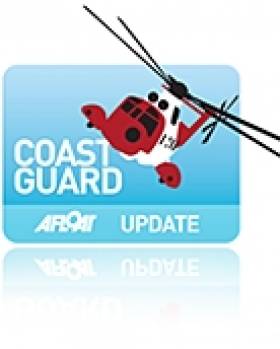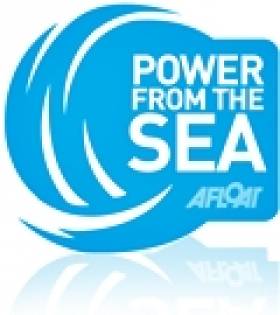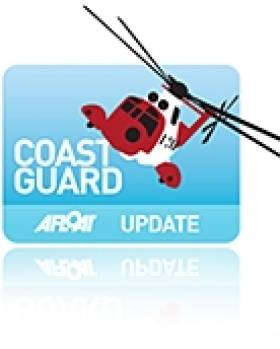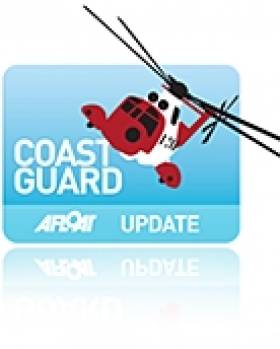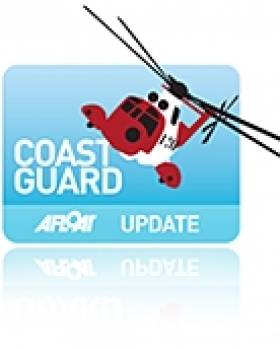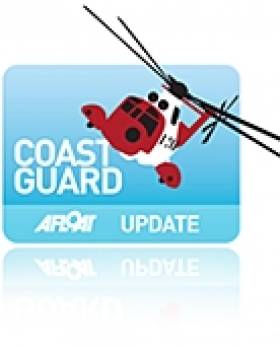Displaying items by tag: network
Italian Coastguard to Deliver Keynote at Dublin Conference
#COASTGUARD - Representaives of Italy's coastguard will give an account of its handling of the Costa Concordia tragedy at an international conference in Dublin next month, The Irish Times reports.
The Italian coastguard has been invited to deliver the keynote address at Search and Rescue 2012, which is being hosted in Ireland for the first time.
It is expected that this address will include a detailed account of the sinking of the cruise liner Costa Concordia last month.
At least 17 people have died and 12 are still missing after the ship ran aground on the western Italian coast. One Irish couple were among the thousands rescued from the stricken vessel.
Meanwhile, attendees at the conference - which is being hosted in the year of Ireland's charing of the EU coastguard network - will also witness demonstrations of the Irish Coast Guard's rescue helicopter fleet at Weston Airport in Leixlip.
As previously reported on Afloat.ie, Irish Coast Guard director Chris Reynolds has been charged with preparing the grounds for a permanent secretariat to be run by EU coastguard officers.
UCC Wave Energy Trials Central to New Maritime Cluster
#POWER FROM THE SEA - A €9 million Europe-wide wave energy trial programme is one of the key elements of a new Government programme designed to transform Ireland as a maritime nation.
According to The Irish Times, University College Cork's Hydraulics and Maritime Research Centre will run testing of wave energy, tidal energy and offshore wind energy devices across a network of sites in 12 European countries participating in the new marine renewables infrastructure network Marinet.
Irish test sites in the network include the national ocean test facility in Cork and centres operated by the Sustainable Energy Authority of Ireland (SEAI) at Galway Bay and Belmullet.
The UCC centre also forms part of the new Irish Maritime and Energy Resource Cluster (IMERC), launched last Friday by Taoiseach Enda Kenny.
The cluster comprises UCC, the Irish Naval Service, Cork Institute of Technology and the National Maritime College of Ireland with the initial aim of creating 70 new research jobs by 2014 in the areas of wave energy, green shipping and sustainability of ocean resources.
IMERC director Dr Val Cummins said: “The aim of IMERC is to promote Ireland as a world-renowned research and development location that will unlock Ireland’s maritime and energy potential."
The Irish Times has more on the story HERE.
- Irish Naval Service
- maritime
- Cork
- Galway Bay
- Belmullet
- National Maritime College of Ireland
- wind energy
- UCC
- Cork Institute of Technology
- renewable energy
- wave energy
- sustainable energy
- tidal energy
- network
- testing
- Sustainable Energy Authority of Ireland
- Taoiseach Enda Kenny
- SEAI
- Hydraulics and Maritime Research Centre
- Marinet
- devices
- Irish Maritime and Energy Resource Cluster
- IMERC
- Dr Val Cummins
NI First Minister Highlights Need for Local Knowledge Over Clyde Coastguard Closure Threat
#COASTGUARD - Northern Ireland's First Minister has highlighted the need for local knowledge in light of the threatened closure of the Clyde coastguard station in Scotland.
As previously reported by Afloat.ie, the control centre at Greenock is set to be scrapped under the UK government's plans to streamline Britain's coastguard network.
Some 31 jobs will be lost in the closure, while rescues on the River Clyde and western Scotland will in future be handled from Northern Ireland's Bangor station on Belfast Lough - which itself was saved from the chop following a review over the summer.
In a letter to MSP for West of Scotland, Stuart McMillan, First Minister Peter Robinson said that his and his government's concerns "centre on the safety of the people using our coasts and seaways, which could be jeopardised by the loss of local knowledge and experience."
McMillan welcomed his support, adding that "despite the consultation period being over, it is not too late for the UK Government listen to the growing number of voices saying that this must be reversed.
“Closing coastguard stations down including Clyde is a short-sighted and dangerous move which puts saving money over saving lives.”
Online Petition Challenges Cuts to UK Coastguard Network
A campaigner on Twitter is encouraging supporters to sign an online petition against the closure of coastguard stations across the UK.
So far almost 7,000 signatures have been added to the petition started by Twitter user @Coastguard_SOS in protest at the UK government's plans to streamline the Maritime and Coastguard Agency's nationwide network of rescue centres from 19 to 11.
As previously reported on Afloat.ie, campaigners in Scotland have made a desperate plea to save the Clyde station from closure in a public consultation.
Northern Ireland's rescue command centre at Bangor on Belfast Lough is among those saved from the chop following a review of reform proposals this past summer.
But concerns remain that resources will be stretched too thin if fewer stations are responsible for broader areas.
"The revised proposals are also unacceptable not least on the basis that vital local knowledge will continue be lost and therefore lives will continue to be out at risk on our coastlines," the petition warns.
Concerns Over Belfast Coastguard Jobs
Concerns persist over the future for Northern Ireland’s coastguard service staff - despite the British government backing down from plans to close the Bangor search and rescue centre.
As previously reported on Afloat.ie, the Bregenz House station was given a reprieve under revised proposals to streamline the UK's coastguard network.
However the coastguard workers' union told the Belfast Telegraph that assurances must still be given to preserve "the same level of service”.
Ian Graham of the Public and Commercial Services (PCS) union said: "The numbers they’re quoting in the proposals are not providing this service with enough staff.
"Lives are still at risk with these proposals, there isn’t one UK coastguard I have spoken to that doesn’t disagree with that. We need to keep fighting to safeguard the service. This was a small victory.”
The Belfast Telegraph has more on the story HERE.
Bangor's Future 'A Victory for People Power'
The decision to keep open Northern Ireland's only dedicated search and rescue base is a victory for people power, says the Belfast Telegraph.
As previously reported on Afloat.ie, the station at Bangor was saved from closure following a review of plans to streamline the UK's coastguard network.
In an editorial on Friday, the paper said: "Northern Ireland really is a place apart geographically and no-one was convinced that the waters around our coastline from Lough Foyle to Strangford and the inland waterways of Lough Neagh and Lough Erne could be safely monitored by what amounted to remote control if Belfast Coastguard was closed."
The preservation of the service at Bangor is also "a victory for common sense".
The paper added: "From now on every person plucked from the sea or the loughs will utter a heartfelt thanks to those who fought to keep the service locally-based and they will also praise Transport Minister Phillip Hammond for sparing it from closure."



























